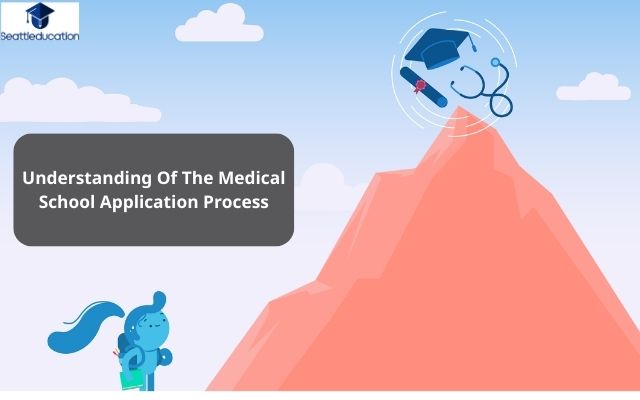Careers In Education Besides Teaching: Beyond Teaching Paths
Although working in education is tremendously gratifying, teaching is only one aspect of the field. There are several additional professions that include assisting students in realizing their full potential and working with them. There are many chances for those who desire to change the lives of young people without ever stepping foot inside a classroom, from school counselors to administration positions.
These alternative careers often require specialized training or certifications, as well as unique skill sets that can help support both teachers and students alike. Whether you’re just starting out on your educational journey or looking for something different from teaching, read on to learn more about some interesting careers in education besides teaching.
Educational Consulting

Anyone interested in a career in education should consider educational consulting. Consultants are employed to provide knowledge and guidance on subjects including curriculum, instruction, assessment, school improvement, technology integration, and professional development to assist organizations and people achieve their educational goals.
The majority of educational consultants have previous experience working in K–12 classrooms or other learning contexts, although others have business backgrounds or are authorities in particular fields. As an educational consultant, you will be able to contribute to a vital process that helps determine the direction of education while using your expertise and abilities to enhance student learning outcomes.
You’ll get to work directly with teachers and administrators to identify challenges within existing systems and develop solutions that can lead to significant progress over time. And you’ll have the unique opportunity to build relationships across various stakeholders, helping them understand how best practices can benefit both students and educators alike.
Curriculum Development
Curriculum development is an important field in the education sector. Professionals in this area are responsible for creating and maintaining course materials that align with learning objectives, standards, and assessments.
Curriculum developers have a wide range of roles and responsibilities, from designing lesson plans to writing specific guidelines for teachers. They also collaborate closely with stakeholders such as administrators and board members to ensure the curriculum meets their expectations. The job requires creativity, organization skills, and knowledge of current trends in teaching strategies.
In addition to these duties, curriculum developers often take on additional tasks such as providing professional development opportunities or working with external organizations to develop supplemental materials. This work can involve researching new methods of instruction or developing online resources for teachers to use in the classroom.
It’s also essential for them to stay up-to-date on any changes occurring within the educational system they serve so they can adjust their approach accordingly. By staying informed about developments both inside and outside of their role, curriculum developers are able to provide valuable insight into what works best when it comes to educating students.
Educational Policy Making
Education is a dynamic field with many different types of careers available. Besides teaching, there are opportunities to work in educational policy making, which involves creating and implementing plans that will shape the future of education.
Here’s a look at some of the roles one could pursue:
- Educational Consultant: These professionals act as advisors for schools, districts and other organizations looking to improve their systems or implement new policies.
- Education Program Coordinator: This role focuses on organizing programs like after-school clubs or extracurricular activities within an educational setting.
- Legislative Aide: An aide works directly with politicians and lawmakers to research existing issues in education, write reports and draft legislation related to education policy.
These positions require individuals who have strong analytical skills and knowledge of current trends in education policy making. They should also possess excellent communication abilities so they can effectively collaborate with stakeholders from various backgrounds such as educators, parents, administrators, etc., to ensure successful implementation of initiatives.
Additionally, creativity is important when it comes to devising innovative solutions that meet the needs of diverse students while following developed guidelines and regulations. With these skill sets and qualities, anyone interested in pursuing a career in this area has plenty of options available to them.
Educational Research
Educational policy making and research are both essential components of a successful education system. The purpose of educational policies is to ensure safe learning environments that provide the necessary resources for students, while research helps us understand how those policies affect student outcomes. Although they have different goals and functions, they are both important elements in improving our education systems.
| Educational Policy Making | Educational Research |
| Establishes guidelines | Examines data |
| Focuses on implementation | Analyzes results |
| Develops solutions | Gathers information |
While policy makers work towards establishing frameworks that will create effective learning experiences, researchers study existing policies to determine what works best. Through their observations, they can better inform decision-makers about which practices should be adopted or discarded. This collaboration between the two fields provides insight into current trends in education and guides school administrators in creating more successful schools with improved academic standards.
School Administration

School administration is an important career in education. It entails making sure the school operates to its maximum capacity with an emphasis on the achievement and welfare of the students.
This entails taking care of both children and staff, managing finances, creating rules and procedures, setting up chances for teachers to pursue professional development, and upholding positive connections with parents and other stakeholders in the community. Administrators need to be able to think strategically about how to best serve the needs of their schools. They also need to have excellent interpersonal skills. Additionally, they should feel at ease collaborating with other parties, such as local companies or government agencies.
For all pupils, administrators are in charge of establishing a secure learning environment. They must thus be informed of any difficulties that could develop at the school, such as bullying, mental health issues, educational inequalities, and diversity efforts, and take the necessary action to address them.
Additionally, administrators will often work closely with faculty supervisors to ensure teaching standards are met, manage teacher workloads, coordinate special events like parent-teacher conferences or open house days, organize extracurricular activities for students, review assessments data regularly, oversee implementation of curriculum changes, among many other duties. All these tasks require excellent organizational skills and attention to detail in order to ensure smooth operations at all times.
Administrators play a vital role in making sure that schools operate effectively; without their hard work and dedication our classrooms would not be nearly as successful!
Non-Profit Organizations
To transition from school administration to non-profit organizations, it’s important to recognize the similarities between the two. Both require a sense of empathy and understanding for people who may be in different circumstances than you, while also requiring an ability to effectively manage resources and personnel.
Non-profits can be found across many sectors including education, healthcare, arts and culture, economic development and more. Here are just some of the positions available:
- Program/Project Manager – responsible for overseeing organizational initiatives that align with the mission statement.
- Fundraising Coordinator – works on various fundraising strategies such as grant writing, donor engagement or campaigns.
- Communications & Marketing Officer– manages communications efforts including press releases, website content and outreach materials.
These roles offer unique opportunities for those looking to make an impact on communities through their work in education by partnering with nonprofits. It is essential to find an organization whose values align with yours so that you can become part of something truly meaningful.
Student Advising
The thought of helping people learn and grow motivates many to pursue a career in education. There are several opportunities outside the traditional classroom setting that can be just as rewarding. Student advising is one such option, providing invaluable support for students’ academic success.
Student advisors act as mentors, counselors, and coaches to guide young minds through their educational journey. They understand the unique needs of each student they work with and provide advice on which classes or activities best suit them. Advisors have an expansive knowledge base regarding college applications, financial aid, study habits, internships, extracurriculars, and more! In order to effectively serve their students, it’s essential for advisors to stay up-to-date on all facets of academia.
| Benefit | Requirement |
| Mentor & Counselor | Understanding of Unique Needs per Student |
| Advice on Classes/Activities | Expansive Knowledge Base Regarding College Applications & Financial Aid |
| Study Habits Coach | Staying Up-to-Date on All Facets of Academia |
| Internship Opportunities Advisor | Ability to Connect Students with Resources & Networking Contacts |
| Extracurricular Activities Guide | Good Interpersonal Skills & Patience |
Being a student advisor offers great rewards like seeing the progress your students make over time or hearing stories about how you’ve helped change someone’s life. It also comes with its fair share of challenges: staying organized while juggling different tasks; understanding complex policies; dealing with difficult conversations; managing tight deadlines – but this role provides opportunities for personal growth and development too. With dedication and hard work you can help shape our future leaders into responsible adults who are ready to take on the world!
Educational Technology
Advising students can be an incredibly rewarding job, but there are many other careers in education aside from teaching.
Educational technology is one option that allows professionals to combine their knowledge of both the educational sector and technological solutions. This career path lets individuals apply cutting-edge technologies to create innovative learning experiences for students.
Educational technologists help teachers integrate technology into classrooms, develop custom programs for particular classes or grade levels, and design software and hardware systems for school use. They frequently serve as a link between instructional designers, administrators, and educators, software developers, and ensuring that all interested parties have access to the materials they require.
In addition, educational technologists could help with the deployment of cutting-edge tools like artificial intelligence (AI), augmented reality, and virtual reality.
With these tools, schools can provide engaging learning opportunities while keeping up with advances in technology.
Conclusion
To sum up, if you’re interested in a career in education then there are plenty of options available. You’ll need qualifications to pursue this field and the amount of time required will depend on your chosen role. It’s also important to consider how much experience is needed and what salary can be expected.
There are some positions that are more sought after than others, so make sure to research these opportunities thoroughly before committing. Overall, it’s an incredibly rewarding profession with lots of potential for growth and satisfaction – whether you choose to teach or explore one of the many other careers available in the educational sector.
So if you have a passion for learning and want to impact lives positively through knowledge, then why not give education a try?







